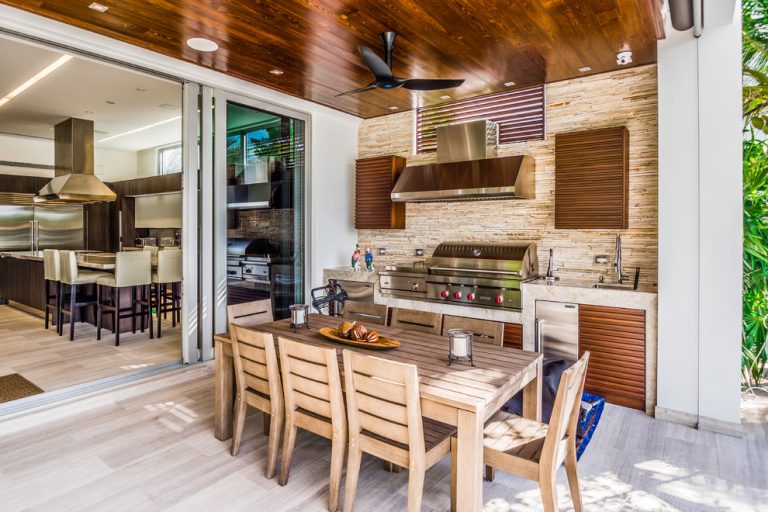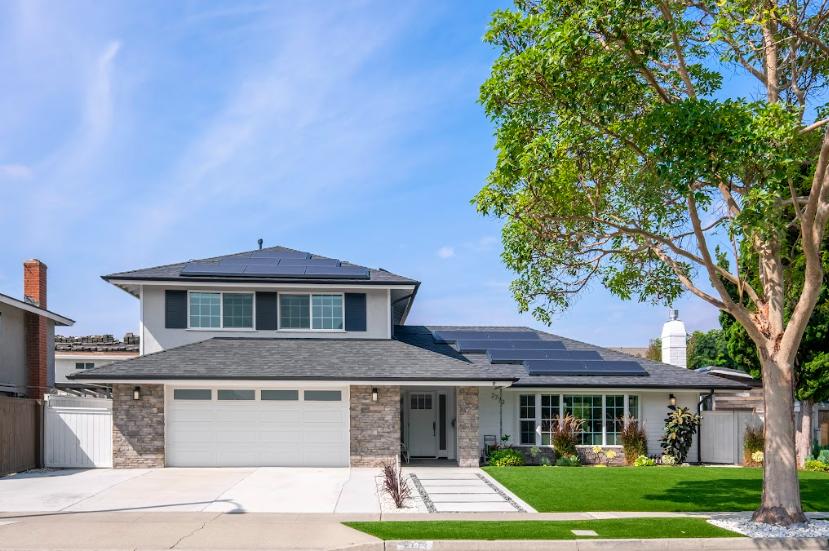Outdoor Kitchens Vs Indoor Kitchens
By Kurt Real Estate Nov 23, 2019

You’ve just moved in to your new house and you love your outdoor kitchen, great. But, Have you stopped to consider all the things that it takes to keep an outdoor kitchen running smoothly? Remember, there’s live electricity, gas lines, appliances and other things that are going to require regular effort.
An outdoor kitchen can be the best investment you’ve ever made, but you definitely should be considering how an outdoor kitchen is different from an indoor kitchen as it comes with a lot of maintenance.
Outdoor Versus Indoor Kitchens: The Big Differences
There’s nothing wrong with an outdoor kitchen, they’re not inherently dangerous or unhealthy, they’re just different than an indoor kitchen. Heck, some of the early pioneers had outdoor kitchens before it was in style. Here are some big differences:
Exposure to Natural Elements
Your indoor kitchen is around 72 degrees Fahrenheit or so all the time, day in and day out. Depending on where you live, your outdoor kitchen could be exposed to some really extreme weather, swinging from below freezing in the winter to above 100 degrees F in the summer. It’s a lot for gaskets, plumbing and wiring to bear. This extreme weather may causes damages to the kitchen.
In addition, ensure that all your outdoor kitchen components are approved for outdoor usage — if anything is not, replace it right away or plan for the equipment to break in the near future.
Levels of Cleanliness
It’s almost a fact that your outdoor kitchen will be dirtier than your indoor kitchen. It’s partially because your indoor kitchen is inside, protected from blowing pollen, dust and the various types of insects and animals that happen to run around at night in your backyard. But, there’s also the fact that you neglect to clean your grill as often as you should and the grill starts to become less and less desirable to cook on.
You can’t keep an outdoor kitchen squeaky clean, but you should always, always, always clean that grill from top to bottom. Not only does grease left in the catcher underneath attract mammals that you’d not normally invite into your kitchen, but the dirtier the grill is, the worse it will perform when it’s time to cook. You do not want to be cooking your carefully marinated steak on a dirty grill.
Counters and Floors
Inside kitchens are pretty easy to maintain. You clean the tile, vinyl or hardwoods with a regular household floor cleaner and wipe the counters with a wet sponge. No problem! Your outside kitchen, as you may have guessed, is a bit more complicated. So many outside kitchens use stone like granite for counters because of this material’s ability to withstand heat and, of course, because they look amazing next to the pool. The “floor” of that kitchen is often concrete or stone. Not the easiest type of flooring to clean.
First, make sure your granite counters are sealed every three to five years to protect them from the worst the sun can deal out. Next, make sure you always sweep your patio clear of grass clippings, blown dirt and other plant materials to prevent weeds from popping up where they can find footing. Lastly, make sure to power wash that patio at least once a year to remove stains, grease and mildew.
Winterizing
Obviously, your indoor kitchen should need little to no winterizing since it’s both serviced by a modern heating system and protected from the cold by at least one wall and the insulation therein. Even in a very old house, the most you might need to do is turn on heat tape that’s wrapped around plumbing to prevent frozen pipes. Your outdoor kitchen, though, will need a lot of care ahead of the cold. You need to be very careful with outdoor kitchens because they are the most vulnerable.
Remember to disconnect all your appliances from their various services. Turn the gas off to the grill, empty and disconnect the fridge, drain and winterize the water lines running to the sink. Cover your patio furniture or bring it inside. Cover the grill and other appliances, too, if your outdoor kitchen lacks a permanent roof (a sail or solar cloth isn’t the same thing). If you’re lucky enough to live in a place that only freezes once in a while, you can wait to disconnect everything until just before the storm comes, provided you’re still using the kitchen regularly.
Having an Outdoor Kitchen is Amazing…
…until something breaks or is severely damaged because of a lack of maintenance. Having regular maintenance checks and good cleaning habits will prevent your kitchen from severe damage, but even the best kitchens need a professional checkup.
Join our network
Keep up to date with the latest market trends and opportunities in Orange County.



